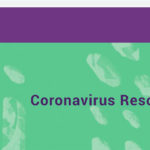RE: Is COVID-19 a hoax? Who do you believe? Who do you trust?
I hope you’ll teach people to think. Baptists don’t do that very well.
Francis Schaeffer said it was vital to know a man’s assumptions. You did that when you said you watch PBS. I love PBS for drama, but it’s certainly not “all things considered.” I’m not saying Fox is balanced or true, but it’s slightly more of all things considered. Reuters, yes, a good basic news source.
You should say most medical people think alike; they do. They generally put out and support the party line. So, we can’t trust them on all points, can we? Most medical schools support evolution, if not in theory, then in practice.
A few scholars and doctors who came out early with a 0.05 percent mortality rate never make the news. That’s more factual than a 1–2 percent mortality rate.
Deaths of people who die from complications of the virus, but not directly from the virus, are counted as though they died from the virus. How is that truthful?
The scare about the virus has consumed our lives. The truth about it needs a voice.
Mark Twain is credited as saying of statistics, “There are liars, and there are damn liars.”
Sir, I accuse you of omitting the truth to make your point.
Sign up for our weekly edition and get all our headlines in your inbox on Thursdays
Let’s look at all sides and admit no news service is unbiased. They all have a product to sell.
We’d be wise to be critical consumers of all we see and hear, judging all by the truth of Scripture and common sense under the leadership of the Holy Spirit.
Joel Blaylock
Allen, Texas
I appreciate when readers engage with our content. I am responding at length here because of the import of the topic.
If most medical personnel think alike and therefore cannot be trusted on all points, then this logic surely applies to the rest of us. Whatever group of which we are a member, most of us in that group think alike on a set of topics and cannot be trusted on all points related to those topics. This would include families, churches, political parties, etc. It may be a valid point, but where is the line drawn between what can and cannot be trusted?
With respect to statistics, I found mention of a 0.05 percent mortality rate on Stat News that was published on Mar. 17, 2020. The specific context of that citation is speculative, and it may not be the source for the statistics cited in the letter. One of the difficulties is keeping up with current information and separating it from old or incorrect information. More current information is available from Stanford Medicine, the Centers for Disease Control and Prevention and the National Institutes of Health.
Near the end of my editorial, I admit the Baptist Standard is not above bias by stating: “Don’t take any one source’s word for it. Compare it against other sources. … this advice is applicable to the Baptist Standard, too.”














We seek to connect God’s story and God’s people around the world. To learn more about God’s story, click here.
Send comments and feedback to Eric Black, our editor. For comments to be published, please specify “letter to the editor.” Maximum length for publication is 300 words.